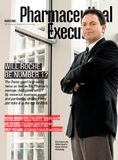Come in Out of the Rain
Pharmaceutical Executive
For pharma to function, it needs a whole network that commands trust. The only alternative is the sort of regulation by mass tort that we've been sliding into in recent years
When I was a kid, one of the high points of the Sunday funnies was Al Capp's Li'l Abner, a unique brew of social satire, old-fashioned hick humor, and PG-level cheesecake drawing, set in the backwoods hamlet of Dogpatch, USA. A recurrent character in the strip was a mournful little guy named Joe Btfsplk. Joe was a jinx. Whenever he arrived, trailing his own personal rain cloud, disaster was sure to follow.

These days, the pharma industry seems to be trailing its own cloud, and it's playing Btfsplk for almost everyone it's associated with. Doctors are under fire for allegedly selling their souls
for pharma-bought lunches and tchotchkes. Medical journals, in several embarrassing instances, have been forced to denounce articles that have passed their own peer-review systems, because of a supposed pervasive pharma influence. Medical education providers seem close to being told that their business is simply untenable—that no education paid for by pharma could possibly be objective, no matter how elaborate the firewalls and protections.
And then there's FDA. You remember FDA—it's that quivering lump of submissiveness in your hip pocket that takes your money, does your bidding, and tries to injure as many Americans as possible in a given year...or so they say.
At a time when you need friends, collaborators, objective judges, and regulators with the muscle to make their decisions stick, virtually all the institutions that you rely on are under the pharma jinx. Sure, everyone (except perhaps the New York Times, Chuck Grassley, and Steve Nissen) knows you're not the world's sole cause of failure, confusion, and faulty data. But let's face it: Every time you show up at the picnic, clouds start to gather.
For pharma to function, it needs a whole network of individuals and institutions whose words and actions command trust. Without them—FDA, the journals, individual prescribers, and others—the only alternative is the sort of regulation by mass tort that we've been sliding into in recent years.
The current call for transparency will help, I suppose. But recent events suggest that the industry needs to go further, toward a culture of setting and maintaining the standards of drug safety and efficacy on its own, as if there was no one to vouch for a drug or a company but the company itself.
I'm sure that many in the industry would claim to be operating that way already. But I'm not so sure. Think of the recent brouhaha over Chinese-manufactured heparin. Should FDA have inspected the plant where the suspect product was manufactured? Of course. But should Baxter have relied on FDA as its defense against defective product? Absolutely not. Should FDA have caught the recently revealed errors in Paxil's safety data? (You can read about it at the Pharm Exec Blog, at pharmexec.com.) Yes. But we all know how thin FDA is stretched. By submitting faulty data, GSK set FDA up to fail. And that hurts the whole industry.
At the hearings over Avandia, numerous members of the FDA Advisory Committee complained that the data did not tell them what they needed to know. Their decision, to an outsider, looks more like a guess than an assessment. Can GSK really afford that? Can any of us?
The idea of FDA as a hurdle to be crossed is deep-seated. It's going to take a lot to change to a mode of action that protects this vital resource. But come on, pharma is an industry of miracle workers. Surely it knows enough to come in out of the rain.
Patrick Clinton
Editor-in-chief

Addressing Disparities in Psoriasis Trials: Takeda's Strategies for Inclusivity in Clinical Research
April 14th 2025LaShell Robinson, Head of Global Feasibility and Trial Equity at Takeda, speaks about the company's strategies to engage patients in underrepresented populations in its phase III psoriasis trials.
Beyond the Prescription: Pharma's Role in Digital Health Conversations
April 1st 2025Join us for an insightful conversation with Jennifer Harakal, Head of Regulatory Affairs at Canopy Life Sciences, as we unpack the evolving intersection of social media and healthcare decisions. Discover how pharmaceutical companies can navigate regulatory challenges while meaningfully engaging with consumers in digital spaces. Jennifer shares expert strategies for responsible marketing, working with influencers, and creating educational content that bridges the gap between patients and healthcare providers. A must-listen for pharma marketers looking to build trust and compliance in today's social media landscape.
Bristol Myers Squibb’s Cobenfy Falls Short in Phase III Trial as Add On Therapy for Schizophrenia
April 23rd 2025In the Phase III ARISE trial, Cobenfy administered as an adjunctive treatment to atypical antipsychotics for patients with inadequately controlled schizophrenia did not achieve statistically significant improvements.